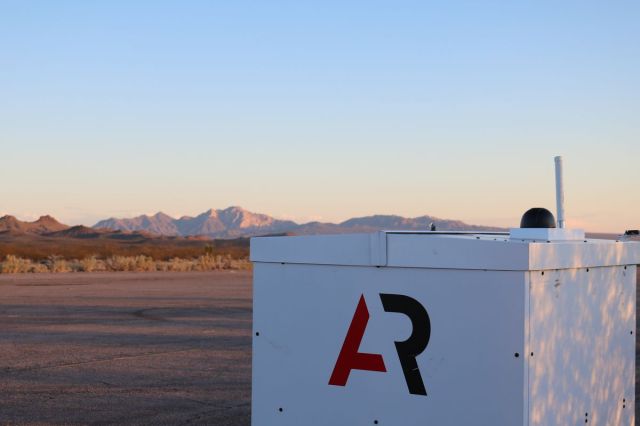The FAA just greenlit this drone to fly autonomously without a human nearby
In October, the FAA took a major stride towards letting increasingly smart drones fly themselves, letting Skydio’s self-flying drones inspect any bridge in North Carolina for four years, as long as humans first verified those bridges were clear.
Now, the US airspace regulator is taking an even bigger step: Aviation Robotics says it’s become the first company allowed to operate drones without needing a human pilot or an observer anywhere near the aircraft.
It’s not quite as big a deal as you’d expect from the company’s press release or The Wall Street Journal’s headline “FAA Approves First Fully Automated Commercial Drone Flights,” because humans still need to be part of the equation: FAA documents show that Aviation Robotics will still need to assign a human to each and every flight, who’ll run through a safety checklist before takeoff and inspect the aircraft with remote tools. They’re not fully automated yet.
[embedded content]
But after that, the company’s drone-in-a-box Scout will take over and fly the mission — and automatically halt if needed. The Scout’s box includes an acoustic detection system that lets the drone sense and avoid other aircraft, which can spot one over two miles away and automatically force the drone to descend, according to the company.

The FAA’s also only approving this waiver for a handful of specific locations in Kansas, Massachusetts and Nevada that are owned by the company or its customers, so it’s not like they’ll be flying over people unawares, either.
As you can see in the company’s video for the Scout system, it’s targeting this tech at companies that want push-button aerial inspections of their own property — not exactly drone deliveries. For that, the FAA has a separate kind of certification. But the FAA does seem interested in what it can learn from letting American Robotics fly without humans physically nearby, as it explains in its justification for the waiver:
American Robotics’ proposed operations will provide the FAA with critical data for use in evaluating BVLOS operations from offsite locations. Once adopted on a wider scale, such a scheme could lend efficiencies to many of the industries that fuel our economy such as agriculture, transportation, mining, technology, and non-durable manufacturing.
American Robotics previously had a beyond-visual-line-of-sight (BVLOS) waiver from the FAA, but that one (PDF) required its pilots to physically be at a location for the pre-flight inspections.
In October, the FAA took a major stride towards letting increasingly smart drones fly themselves, letting Skydio’s self-flying drones inspect any bridge in North Carolina for four years, as long as humans first verified those bridges were clear. Now, the US airspace regulator is taking an even bigger step: Aviation…
Recent Posts
- De’Longhi’s new bean-to-cup coffee machine could make you a milk-frothing maestro
- ICYMI: the 7 biggest tech stories of the week, from a next-gen Alexa to the new iPhone 16e
- The price of AMD’s most powerful processor ever has been slashed by almost half and I can’t understand why
- 10% Off Dell Coupon Codes in March 2025
- Dyson Promo Codes: 20% Off | March 2025
Archives
- March 2025
- February 2025
- January 2025
- December 2024
- November 2024
- October 2024
- September 2024
- August 2024
- July 2024
- June 2024
- May 2024
- April 2024
- March 2024
- February 2024
- January 2024
- December 2023
- November 2023
- October 2023
- September 2023
- August 2023
- July 2023
- June 2023
- May 2023
- April 2023
- March 2023
- February 2023
- January 2023
- December 2022
- November 2022
- October 2022
- September 2022
- August 2022
- July 2022
- June 2022
- May 2022
- April 2022
- March 2022
- February 2022
- January 2022
- December 2021
- November 2021
- October 2021
- September 2021
- August 2021
- July 2021
- June 2021
- May 2021
- April 2021
- March 2021
- February 2021
- January 2021
- December 2020
- November 2020
- October 2020
- September 2020
- August 2020
- July 2020
- June 2020
- May 2020
- April 2020
- March 2020
- February 2020
- January 2020
- December 2019
- November 2019
- September 2018
- October 2017
- December 2011
- August 2010